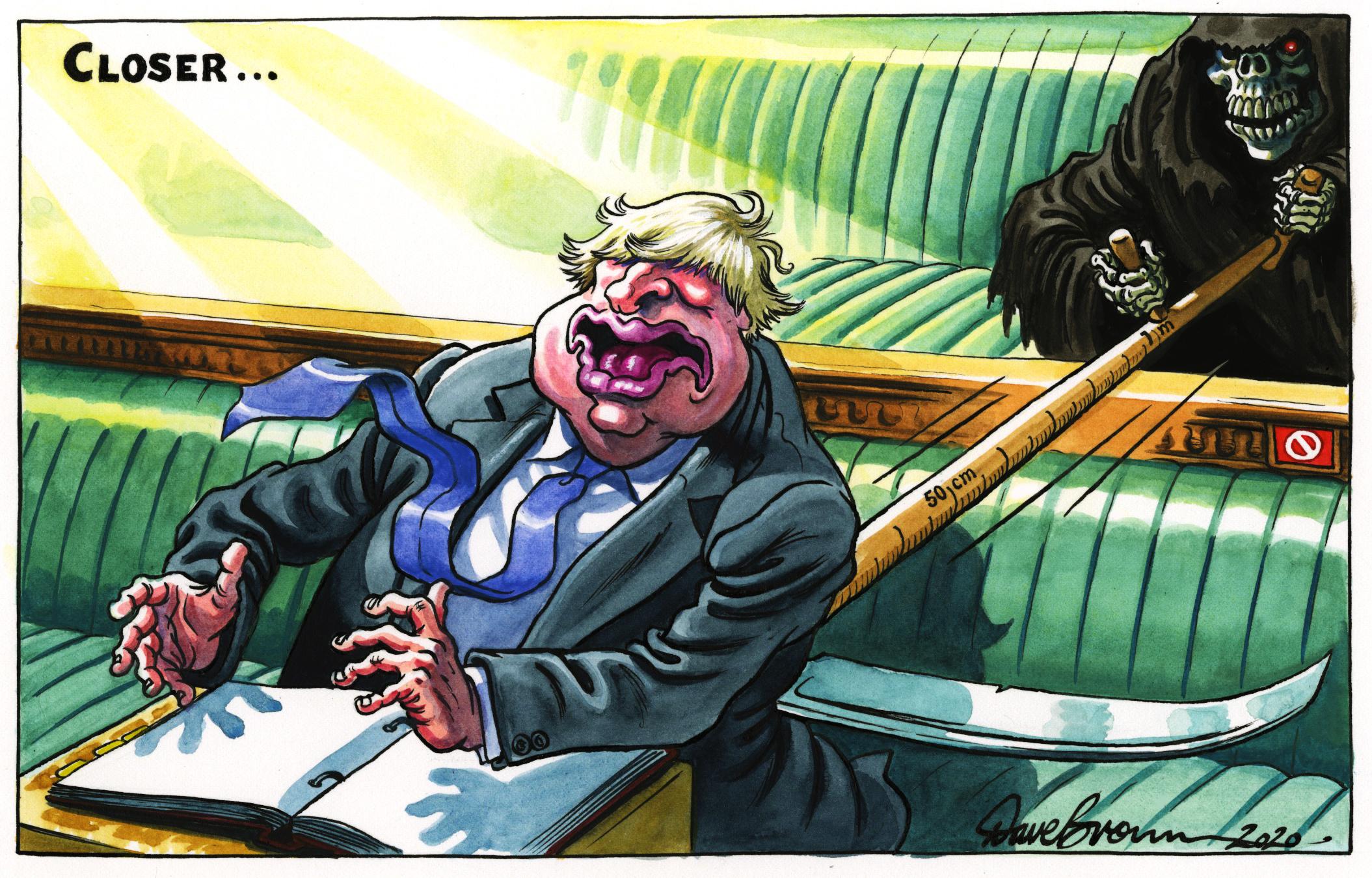It says a lot about the state of the nation that a prime minister can go to the House of Commons and announce that, in a matter of only a couple of weeks, an English citizen will be able, legally, to enjoy a drink in a pub and get their hair cut by a professional.
From some of the reactions you’d be forgiven for thinking this was the end of lockdown. Except, that is, for the devolved administrations: the thirsty and hirsute residents of Scotland, Wales and Northern Ireland will have to wait a while longer to meet such needs.
Although widely trailed, the reduction in minimum social distancing to “one metre plus”, the relaxation of visiting rules for overnight stays and the opening of inns, hairdressers, restaurants, playgrounds, cinemas, museums, galleries, campsites, places of worship and the rest are very welcome.
That drink and that haircut, however, will not be quite as we have known them. Indoor drinks will be table-service only, and, it seems, will need to be booked in advance to be sure of refreshment. The person tending to your hair will in future be behind a visor, an accessory yet to be made fashionable. Conversation, in all cases, will be trickier while wearing a face covering, let alone enjoying a whisky and soda or a chicken in a basket bar snack for two.
Which is perhaps the point. The new one-metre social-distancing rule will not necessarily make these premises either easy to use or profitable. Some have already spent money in readying themselves for a two-metre social-distancing norm. All will be faced with carrying all the staff costs and overheads associated with reopening, plus investment in a Covid-secure environment and building up stock; yet may be rewarded with only a modest fraction of their usual takings.
Every insolvency practitioner understands that it is moments such as this when cash flow comes under the most strain. For many businesses, including the smaller shops already open, it would make more sense to carry on with the support schemes and furloughing of staff, at least until the schemes are wound down.
Yet that moment of reckoning is not far away, and many businesses could conceivably go bust as they attempt to transition to normality. There may be a case for more transitional relief, to prevent a collapse in certain sectors and a more permanent increase in queues for the job centre. Noting that fully one-third of workers in British vehicle manufacturing and the garage trade are furloughed, the Society of Motor Manufacturers and Traders makes a powerful case for the preservation of skilled jobs and a vital export sector.
So even on the most optimistic assumptions, there can be no great bounce back to normal. The schools remain closed, workers are still advised to work at home where possible and use of public transport is still discouraged. It is quite impossible to imagine, say, London returning to pre-Covid patterns without a fully loaded Underground and train service running. If you’re not called Nigel Farage then going abroad is still basically banned. Sports venues remain fan-free zones. Nightspots and nail bars are still no-goes.
Nor is the latest progress necessarily permanent. As Boris Johnson mentioned, if these relaxations bring a second wave of infections that might overwhelm the NHS, then a new lockdown may have to be implemented, which would be something of a disaster.
The main defence against that disorderly retreat from a renewed advance by the coronavirus is the test and trace system. It is weak. We know enough about the failings of it to know that it is not capable of playing “whack a mole”, as Mr Johnson charmingly terms the localised battle against outbreaks of a deadly disease.
The levels of infection in the UK have come down dramatically, and the experts have judged that exponential growth of the pandemic is no longer an immediate danger (hence the reduction in the official threat level), but not everyone qualified to look at the evidence agrees. This may be another blunder; no one can know. It is at least a calculated gamble for huge stakes.
In other words no one in England should get overexcited as they venture out for a drink or a haircut in the midday sun. This is not over yet.

Join our commenting forum
Join thought-provoking conversations, follow other Independent readers and see their replies
Comments